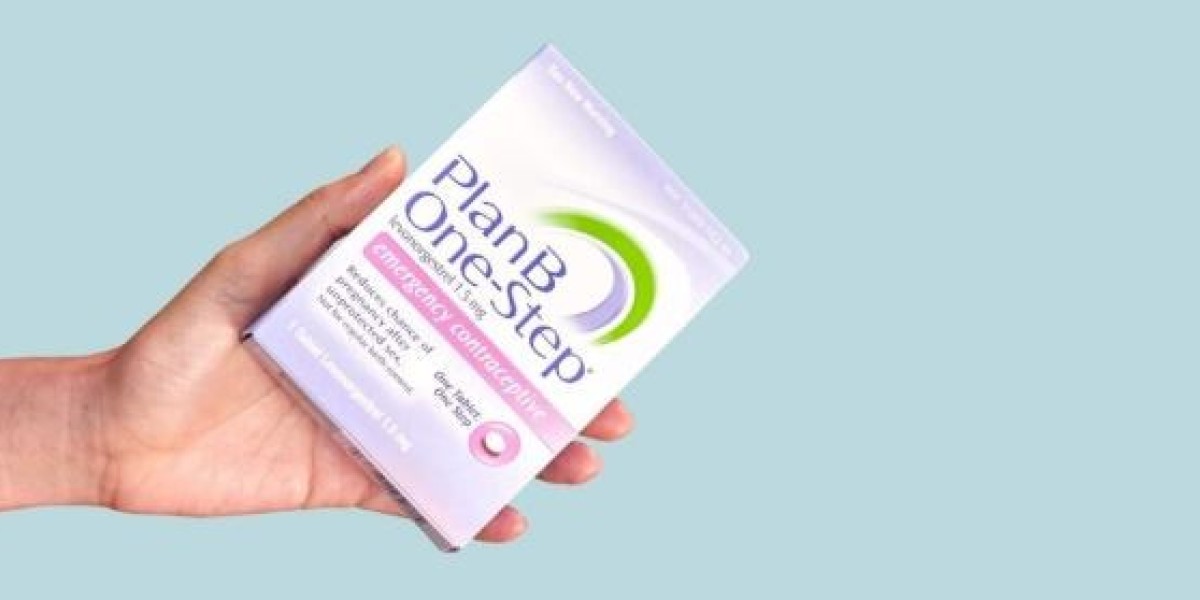Emergency contraception is a critical option for individuals who need to prevent pregnancy after unprotected sex or contraceptive failure. One of the most well-known forms of emergency contraception is Plan B, a safe and effective way to reduce the chance of pregnancy. This guide will walk you through everything you need to know about emergency contraception, including how it works, when to use it, and how to access it.
What is Emergency Contraception?
Emergency contraception (EC) is a type of birth control that can be used after unprotected sex to prevent pregnancy. It’s often referred to as “the morning-after pill,” though this term can be misleading since EC can be taken up to 72 hours (and sometimes longer) after intercourse. The two main types of EC available are:
- Plan B One-Step: This is an over-the-counter pill containing levonorgestrel, a synthetic hormone. It works by preventing ovulation, which stops the release of an egg from the ovaries.
- Ella: Another pill option that requires a prescription. Ella contains ulipristal acetate and can be effective for up to five days after unprotected sex.
- Copper IUD: While typically used as a long-term birth control method, the copper IUD can also function as an emergency contraceptive if inserted within five days after unprotected sex.
How Does Plan B Work?
Plan B, the most widely recognized form of emergency contraception, works by delivering a high dose of levonorgestrel, a hormone that prevents pregnancy in several ways. The primary mechanism of Plan B is to stop ovulation. Without an egg being released from the ovaries, sperm cannot fertilize it.
Plan B does not work if a person is already pregnant, and it is not considered an abortion pill. It is most effective when taken as soon as possible after unprotected intercourse, though it can still reduce the risk of pregnancy if taken within 72 hours. Plan B’s effectiveness diminishes with time, so taking it within the first 24 hours offers the highest chance of success.
When to Use Emergency Contraception
There are several situations in which emergency contraception may be necessary, including:
- Unprotected sex: If no form of contraception was used during intercourse.
- Contraceptive failure: If a condom breaks, slips, or is used incorrectly, or if a birth control pill is missed.
- Sexual assault: EC can be a necessary option in cases of sexual assault where no contraception was used.
It’s important to note that EC should not be used as a regular form of contraception but rather as a backup in emergency situations. Long-term methods of birth control, such as the pill, IUD, or condoms, are more reliable for ongoing pregnancy prevention.
How Effective is Plan B?
Plan B is highly effective when taken within the recommended time frame. When taken within 24 hours after unprotected sex, its effectiveness rate is about 95%. However, as time passes, the effectiveness decreases:
- Taken within 24 hours: ~95% effective
- Taken within 48 hours: ~85% effective
- Taken within 72 hours: ~58% effective
It’s essential to take Plan B as soon as possible to ensure the highest likelihood of preventing pregnancy.
Side Effects of Emergency Contraception
While emergency contraception is generally safe for most individuals, there can be some side effects after taking Plan B. Common side effects include:
- Nausea or vomiting: Some people experience mild to moderate nausea after taking Plan B.
- Fatigue: Feeling unusually tired is a common reaction.
- Dizziness: Some may experience a sense of lightheadedness or dizziness.
- Breast tenderness: Hormonal changes can cause temporary soreness in the breasts.
- Changes in menstrual cycle: Your period may come earlier or later than usual, and it might be heavier or lighter than normal.
These side effects usually subside within a few days. If severe or persistent side effects occur, it’s important to seek medical advice.
Where to Get Emergency Contraception
Plan B is available over-the-counter without a prescription in most pharmacies and drugstores. It’s typically stocked in the family planning or contraceptive section, but if you can’t find it, you can ask the pharmacist for assistance. You can also purchase Plan B online from various retailers, often with next-day delivery options.
For other forms of emergency contraception, like Ella, you will need a prescription from a healthcare provider. A copper IUD requires a visit to a healthcare provider who can insert it within five days after unprotected intercourse.
Myths About Emergency Contraception
There are many myths surrounding emergency contraception, particularly about Plan B. Let’s clear up some of the most common misconceptions:
- Myth 1: Plan B is the same as the abortion pill. Fact: Plan B prevents pregnancy before it begins; it does not terminate an existing pregnancy. It will not work if you’re already pregnant.
- Myth 2: You can only take Plan B the morning after unprotected sex. Fact: Plan B can be effective for up to 72 hours after unprotected sex. However, it’s most effective when taken as soon as possible.
- Myth 3: Plan B causes infertility. Fact: There is no evidence that taking Plan B affects long-term fertility. It simply prevents pregnancy in the short term.
Plan B vs Regular Contraception
While emergency contraception like Plan B is a reliable option in emergency situations, it should not replace regular contraceptive methods. Regular methods, such as birth control pills, IUDs, or condoms, are more effective at preventing pregnancy and offer additional benefits, such as regulating menstrual cycles or protecting against sexually transmitted infections (STIs). Plan B is intended for occasional use and does not provide protection against STIs.
Conclusion
Emergency contraception, particularly Plan B, provides a safe and effective way to prevent pregnancy after unprotected sex or contraceptive failure. It’s essential to act quickly and take Plan B within 72 hours for the highest chances of success. While Plan B is a valuable backup option, it should not replace regular forms of contraception. Always consult with a healthcare provider if you have questions or concerns about emergency contraception and its use in your personal health care plan.








